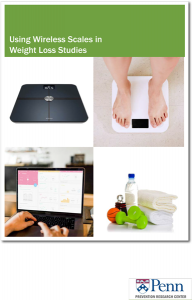Feb 18, 2020
Join us next Thursday, February 20th for the ACC Population Science Seminar – “Helping Parents Quit Smoking in Pediatric Settings”.
Please reply with your RSVP by Monday, February 17th.
The Cancer Control Program is one of two Population Science Research Programs of the Abramson Cancer Center. Program members work intra- and inter-Programmatically to apply advances in science to population health and cutting-edge data analytics, address the cancer burdens and risk factors in our catchment area, and train the next generation of cancer control researchers.
Monthly Abramson Cancer Center Population Science Research Seminars are sponsored by:
Mar 25, 2019
Highlights from Research Day on March 21, 2019
A joint project of the DBEI and the Center for Clinical Epidemiology and Biostatistics at Penn.
Karen Glanz, PhD, MPH started off the day with her Featured Faculty Talk, “Food and Nutrition Environments: Is There an Elephant in the Room?” In addition to her informative talk, investigators from the UPenn PRC contributed two projects to the Poster Session. One features the message development and testing from our Skin Cancer Communication Project and the other highlights the methods and results from our core research project, The Healthy Weigh Study.
We also enjoyed the keynote with Peter Embi, MD, MS, FASP, FACMI from Indiana University School of Medicine with his personal journey through diagnosis and treatment and how the whole health system could better serve patients.
To download photos from this event, visit our Facebook album. View tweets from the event by searching #2019ResearchDay on Twitter.
Watch video and coverage of the Featured Faculty Talks here!
55468396_2354559694865187_910318395696611328_o
54519476_2354559611531862_6350034230021455872_o
54367089_2354559761531847_3321969921407057920_o
54364832_2354559718198518_1526002086427230208_o
54278542_2354559584865198_6173817966749024256_o
53915100_2354559781531845_6624941209599082496_o
53820961_2354559621531861_3210241939249037312_o
Nov 19, 2018
The Tobacco Control Science Evidence Academy was held last Friday, November 16, 2018 at The Study at University City. There was ample space for the 90 registrants, breakfast and lunch, along with nine different breakout sessions. All were there to learn and share research on tobacco control, cessation, and smoking technology.
View the program of the event for details and presentation titles, here.
The Plenary Addresses started us off, with Andrew Strasser, PhD, Robert Schnoll, PhD, and Andrea Villanti, PhD, MPH.
After the Clinical, Research, and Policy/Action Breakout Sessions, there was a short break to grab lunch and then take a seat for the Keynote Speaker, Kurt Ribisl, PhD, who gave his presentation on the “Demise of Cigarettes and the Rise of E-Cigarettes: Fixing our Flawed Response.”
The Planning Committee assembled a panel of specialists to discuss how tobacco is affecting Philadelphia.
Sean McCormick moderated the panel through a discussion of how they’ve been able to make changes in their organizations’ policies and provide a healthier environment. We had five Flash Talk presenters from different universities and organizations.
Oct 4, 2018

This Evidence Academy will be a one-day conference designed to bring together researchers and health professionals, advocates, and policymakers, to accelerate the process of integrating research findings about tobacco prevention and control, into public health and clinical practice.
The Cancer Prevention and Control Research Network (CPCRN) and the UPenn Prevention Research Center (UPenn PRC) are funded by the Centers for Disease Control and Prevention (CDC) and the National Cancer Institute (NCI), and seek to improve health, reduce disparities, and bridge the gap between research and practice. This event is also sponsored by the Penn Medicine Abramson Cancer Center, a world leader in cancer research, patient care, and education.
November 16, 2018
8:00 a.m. to 5:00 p.m.
The Study at University City, 3700 Walnut Street, Philadelphia, PA
Featured Speakers
• Michael Amato, PhD
Methodologist and Research Investigator
Truth Initiative
• Michael Fiore, MD, MPH, MBA
Hilldale Professor of Medicine
University of Wisconsin
• Meghan Moran, PhD
Assistant professor in Department of Health, Behavior & Society
Johns Hopkins University Bloomberg School of Public Health
• Kurt Ribisl, PhD
Professor and chair in the Department of Health Behavior
University of North Carolina Gillings School of Global Public Health
• Robert Schnoll, PhD
Associate Professor in the Department of Psychiatry
University of Pennsylvania
• Andrew Strasser, PhD
Research Associate Professor of Behavioral Health in Psychiatry
University of Pennsylvania Perelman School of Medicine
• Anil Vachani, MD
Associate Professor of Pulmonary and Critical Care Medicine
University of Pennsylvania Perelman School of Medicine
• Jennifer Irvin Vidrine, PhD
Professor in the Department of Family & Preventive Medicine
University of Oklahoma Health Sciences Center
• Andrea Villanti, PhD, MPH
Associate Professor in the Department of Psychiatry
Vermont Center on Behavior & Health at the University of Vermont
View the event program
Jun 18, 2018

A call for Community Scholars
Applications are now being accepted for the Community Scholars-in-Residence program which will be focused on cancer prevention and control research.
Through this program, scholars will develop relationships with a community research partner of their choosing, identify research opportunities, and co-develop research projects during a one to two-year tenure with a community partner organization.
Eligibility: Standing pre/post docs with an interest in conducting community-engaged health research Project Topics: Projects must focus on cancer prevention and control research, and must be co-developed with a community partner Program Duration: 12-24 months Funding: Each Scholar/Community Organization team will receive up to $5,000 for their project Program Start: September 2018. Application Deadline: June 1, 2018 EXTENDED THROUGH JUNE!
Program Structure:
Faculty Mentorship: Scholars will identify a mentor from qualified faculty in the area of cancer prevention and control research. Mentors will guide the development, implementation and evaluation of the project. Scholars are expected to meet with their mentor on a monthly basis. Mentors will receive $500 (for discretionary funds) for their support.
Community Partner Organization: The community partner organization should be identified by the scholar and can include any community organization that provides, plans for, coordinates, organizes, pays for, or regulates health/public health services or impacts health outcomes in the community.
Time Commitment: Scholars will devote an average of 4-6 hours per week to this program and it is expected that a majority of the time will be spent with the community partner.
Formal Training: Scholars will participate in a one-day kick-off workshop that will cover key community-engaged research skills and participate in regular meetings and trainings that will provide opportunities for sharing personal experiences and lessons learned. Representatives from the community partner organizations will be invited to participate in the meetings.
Funding: Scholars will develop a project and submit a proposal for funding (up to $5,000 per project). We suggest building in a minimum of $500 for your host organization.
Please contact Jill McDonald at jillmcd@upenn.edu for more information and a program application.
Funding for this program comes from Community Engagement and Research Core in the Penn CTSA and the UPenn Cancer Prevention and Control Research Network (CPCRN).
Dec 7, 2017
On November 29, 2017, three of University of Pennsylvania’s distinguished professors presented their collaboration on Health Disparities in the second PIK seminar. Penn Integrates Knowledge (PIK) is a program where the hand-picked professors collaborate and “bring knowledge together across disciplines and use that knowledge to illuminate some of the most fundamental issues of our time.”
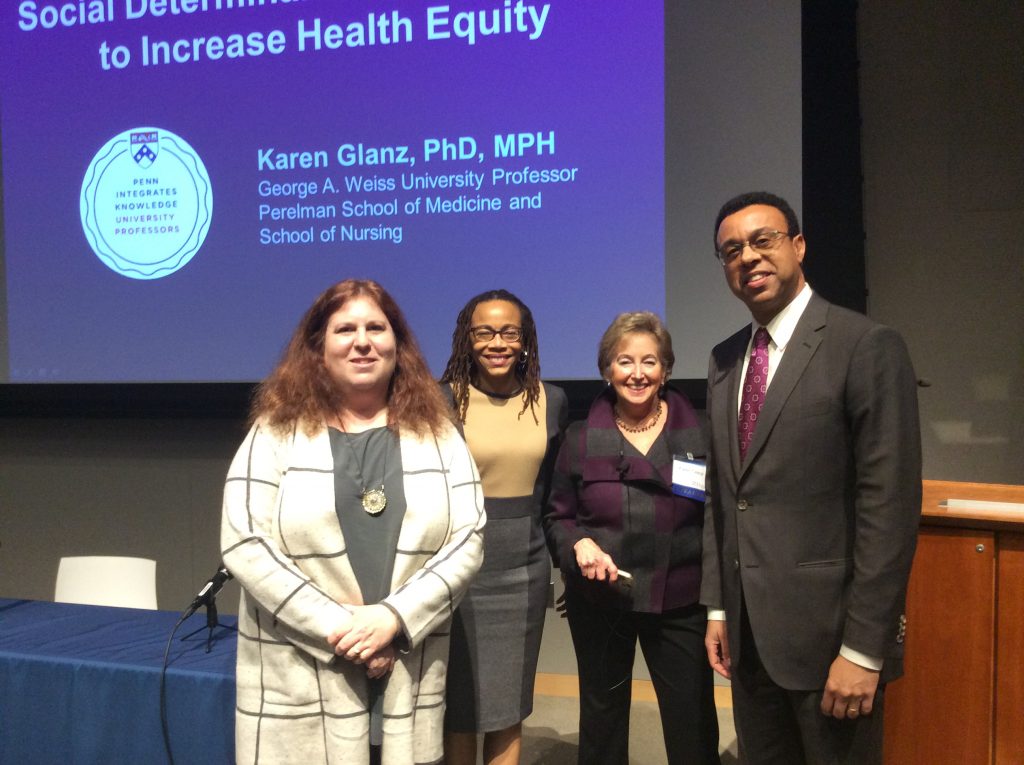
Sarah Tishkoff, Dorothy Roberts, and Karen Glanz with Provost Wendell Pritchett.
The speakers:
- Karen Glanz, MPH, PhD of Perelman School of Medicine and School of Nursing
- Sarah Tishkoff, PhD of the Perelman School of Medicine and the School of Arts and Sciences
- Dorothy Roberts, JD of Penn Law and School of Arts and Sciences
- Introduction by Provost Wendell Pritchett.
They presented their ideas on Health Disparities: Integrating Knowledge from Genomics, Social Sciences and Law to a group of about 140 at the Law Auditorium in the Jordan Medical Education Center. There was a live-stream of the presentation for those that couldn’t make it.
You can view the live-stream video of the seminar HERE.
Each presentation is also featured on the Penn LDI site HERE.
After taking questions, the speakers and audience continued the conversation at a reception in the beautiful atrium.
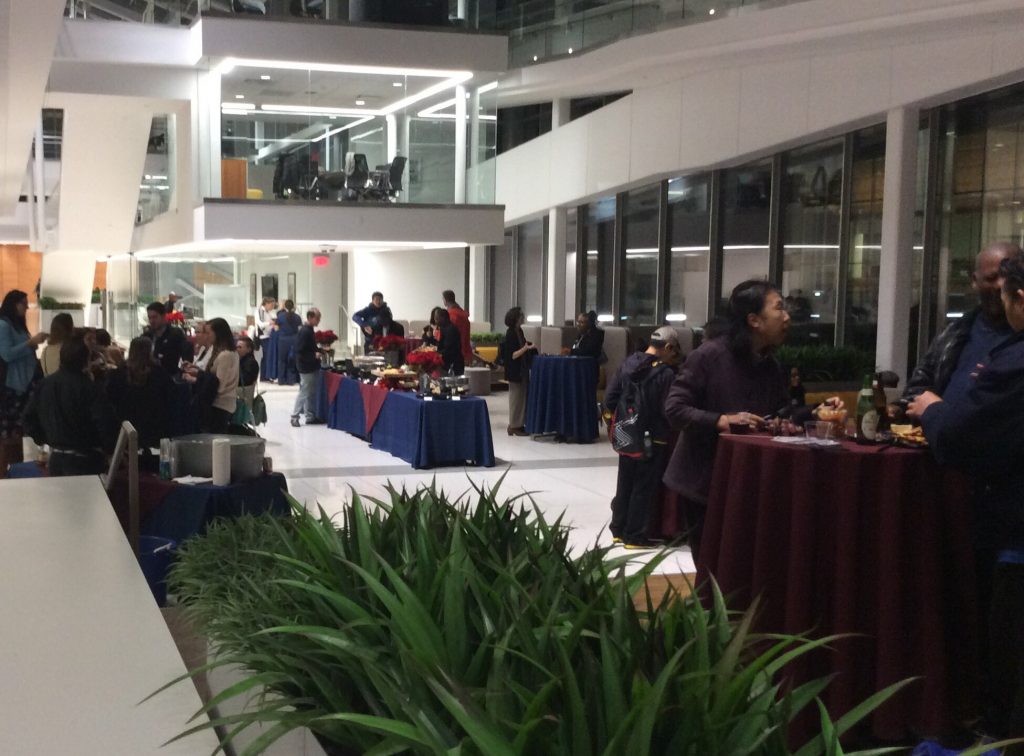
The atrium at Jordan Medical Education Center.
Mar 29, 2016
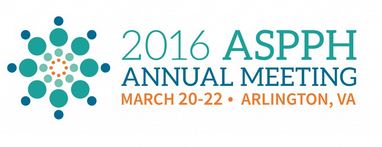 UPenn PRC Director, Karen Glanz, PhD, MPH, joined other PRC Directors in a session to mark the 30thAnniversary of the CDC’s Prevention Research Centers Program at the Association of Schools & Programs of Public Health (ASPPH) Annual Meeting March 20-22, 2016 in Arlington, Virginia.
UPenn PRC Director, Karen Glanz, PhD, MPH, joined other PRC Directors in a session to mark the 30thAnniversary of the CDC’s Prevention Research Centers Program at the Association of Schools & Programs of Public Health (ASPPH) Annual Meeting March 20-22, 2016 in Arlington, Virginia.
Dr. Glanz and her fellow PRC directors discussed the past accomplishments of their centers and the prevention challenges they are currently addressing. In addition to these challenges, other session topics included the Congressional and administrative history of the program, the future goals of the program, and its interaction with other federal research funders.
The Prevention Research Centers Program is a network of 26 academic research centers in 24 states. Each PRC studies how people and their communities can avoid or counter the risks for chronic illnesses. These centers are located at either a school of public health or a medical school that has a preventive medicine residency program. As a result, the centers are leaders in translating research results into policy and public health practice.
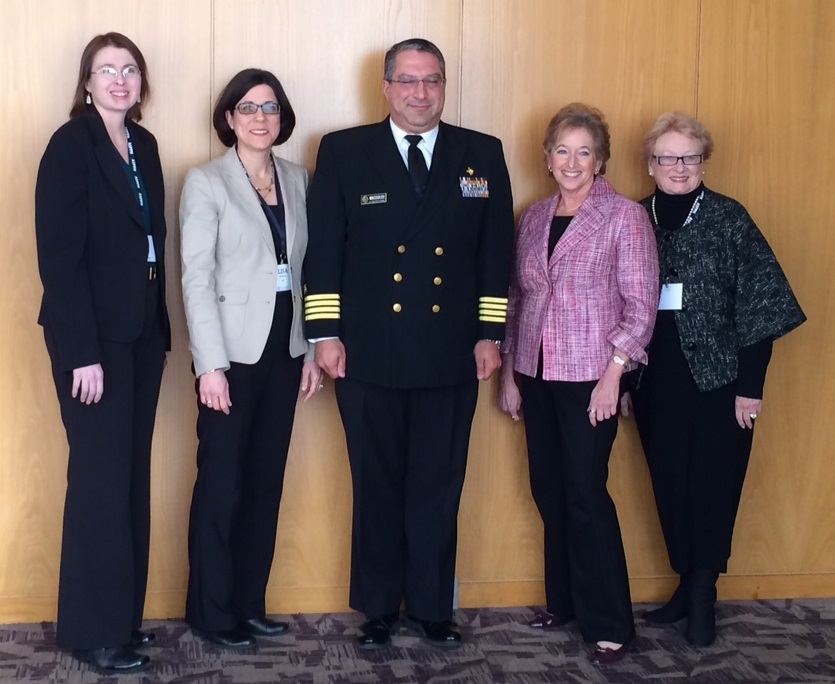
(Peggy Hannon, PhD, MPH, Health Promotion Research Center, University of Washington, Lisa Powell, PhD, Illinois Prevention Research Center, University of Illinois – Chicago, Mehran S. Massoudi, PhD, MPH (CAPT, USPHS), Director, PRC Program, CDC, Karen Glanz, PhD, MPH, University of Pennsylvania Prevention Research Center, University of Pennsylvania, Carolyn Johnson, PhD, MS,Tulane Prevention Research Center, Tulane University)
Mar 3, 2016
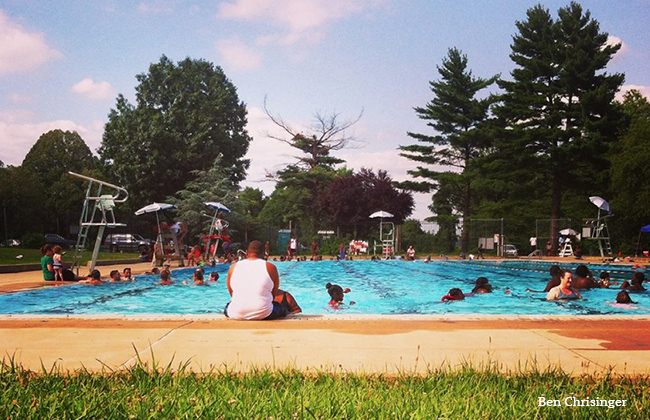
The Penn Institute for Urban Research, in collaboration with the Center for Public Health Initiatives, announced the winner of its 2016 photo contest. The theme of the contest was “public health and the urban environmental landscape.” The announcement was made at the “Shaping the Urban Health and Environmental Landscape” symposium, held on February 25th in the Fisher Fine Arts Library at the University of Pennsylvania. The entries were judged by the symposium’s panel of experts, who looked for compelling images that emphasize ways that urban design has succeeded or failed to promote public health and well-being. The winning photograph, “Summer’s Day at John Kelly Pool, Fairmount Park, Pa.,” was taken by Ben Chrisinger.
Runners-Up
“Schuylkill River Trail” by Rob Lybeck

Teng Teng’s “Spruce Street Harbor Park, Philadelphia.”

Feb 25, 2016
 The Center for Public Health Initiatives
The Center for Public Health Initiatives
and
The Penn Institute for Urban Research
present
The Science of Simple, Low-Cost Health and Safety
Interventions
Co-Sponsored by the UPenn PRC
Thursday, February 25, 2016 from 12:00 pm – 1:30 pm
As part of the 2015-2016 CPHI Seminar Series From Innovation to Dissemination, Charles Branas, PhD, Professor of Epidemiology at the University of Pennsylvania, and Sara Heller, Assistant Professor of Criminology at the University of Pennsylvania discussed effective, low-cost ways to keep communities healthy and safe.

Dr. Branas, PhD, is a member of the UPenn PRC Internal Advisory Board and Professor of Epidemiology in the Perelman School of Medicine at the University of Pennsylvania. He works to improve health and healthcare and is recognized for his efforts to reduce violence and enhance emergency care. Much of his work incorporates human geography and place-based change. His studies have taken him to cities and small towns across the US and other countries.
Feb 23, 2016
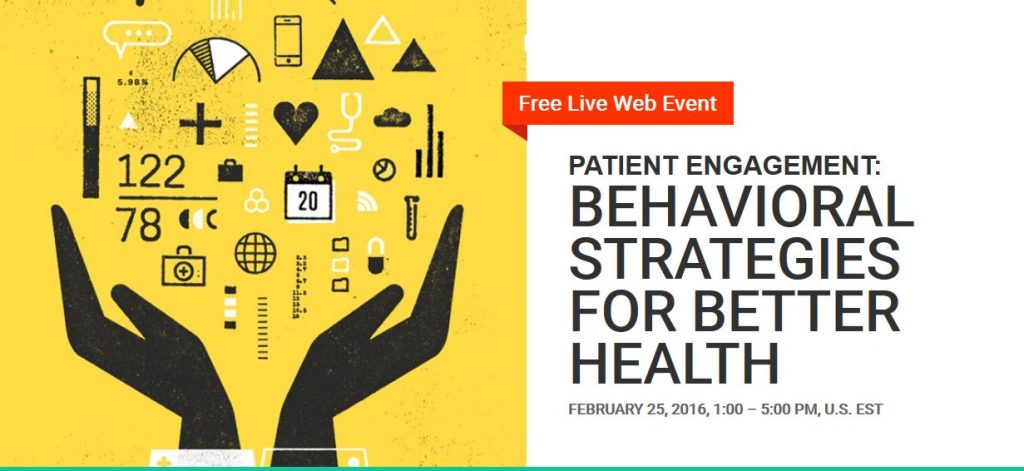
On Thursday, February 25, NEJM Catalyst produced a live web event titled Patient Engagement: Behavioral Strategies for Better Health. Hosted by the Center for Health Incentives and Behavioral Economics at the University of Pennsylvania, the event provided expert insight and real-world examples on ways to improve the quality and value of health care through patient engagement.
The event featured eleven preeminent business and clinical experts, with in-depth knowledge of:
- behavioral psychology
- habit formation
- behavioral economics
- social marketing
Experts shared their perspectives on ways to change patients’ health behavior across a wide range of clinical contexts. In addition to scalable, actionable ideas on how to motivate patients to take an active role in optimizing their health.
“As health care leaders and clinicians see more and more how the pressures to improve patient outcomes are driving health care organizations’ interests, it’s important to think broadly about how we influence patient behavior and how that helps to keep people healthy,” said Kevin Volpp, MD, PhD, Director of the Center for Health Incentives and Behavioral Economics; Vice Chairman for Health Policy, Medical Ethics and Health Policy; and Professor of Medicine, Medical Ethics and Health Policy and Health Management, Perelman School of Medicine and the Wharton School, University of Pennsylvania, UPenn PRC Director, and Lead Advisor for NEJM Catalyst.
Feb 17, 2016
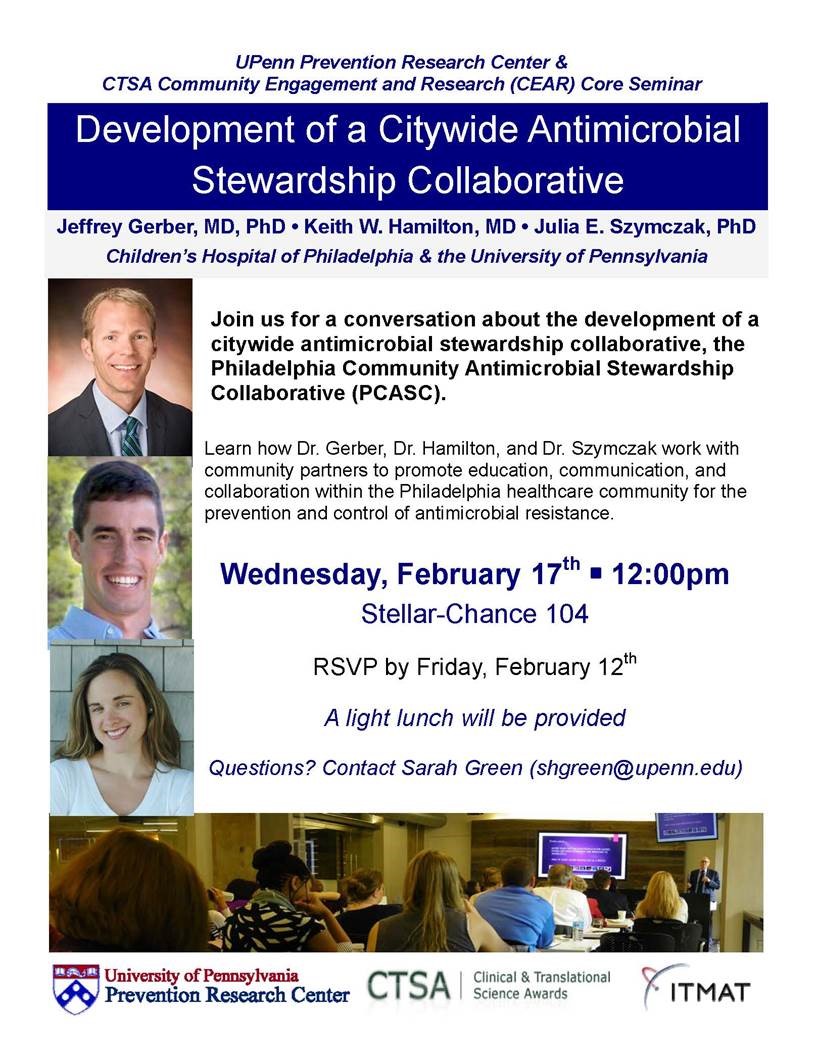
=1
Feb 9, 2016

Bringing together student leaders from all the Ivy League universities for three days of workshops, speakers, and discussions focused on unearthing campus perceptions of stress, the University of Pennsylvania hosted: Unmasking the Ivy League: A Conference on Mental Health in the Ivy League.
Over the three-day weekend, student leaders analyzed stressors to mental health on college campuses, identified and discussed the resources available at each university, and collaborated on possible plans of action. In preparation for the conference, each delegation created a booklet summarizing the status of mental health at their university as well as resources and current initiatives at their home institution.
The UPenn PRC is proud to have been a co-sponsor of this event.
http://ivyleague-mentalhealth.com/
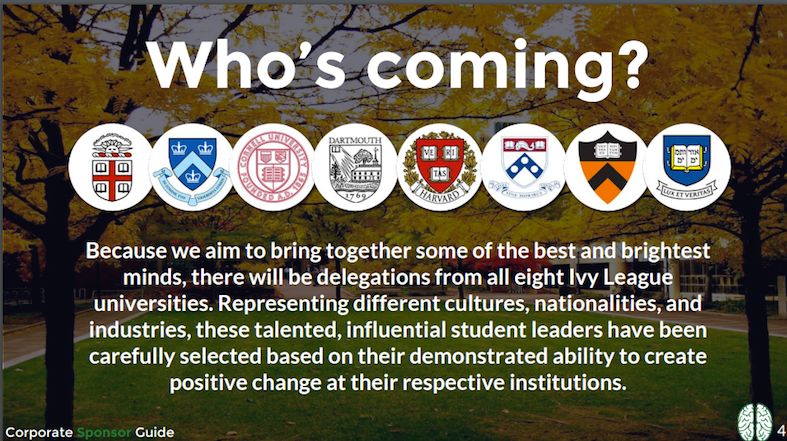


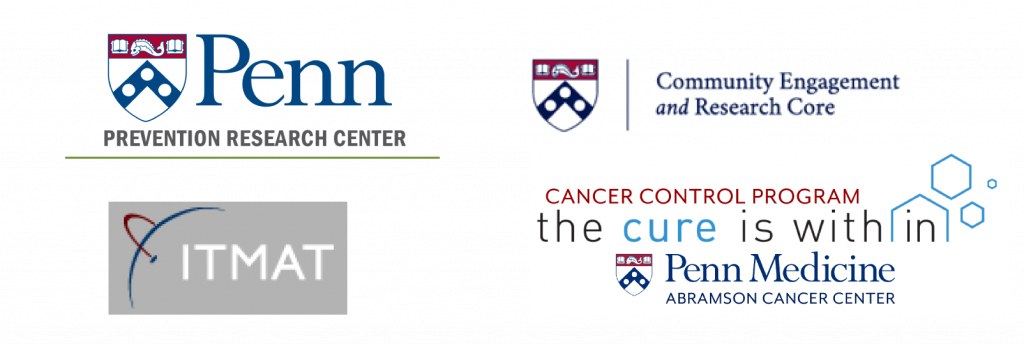
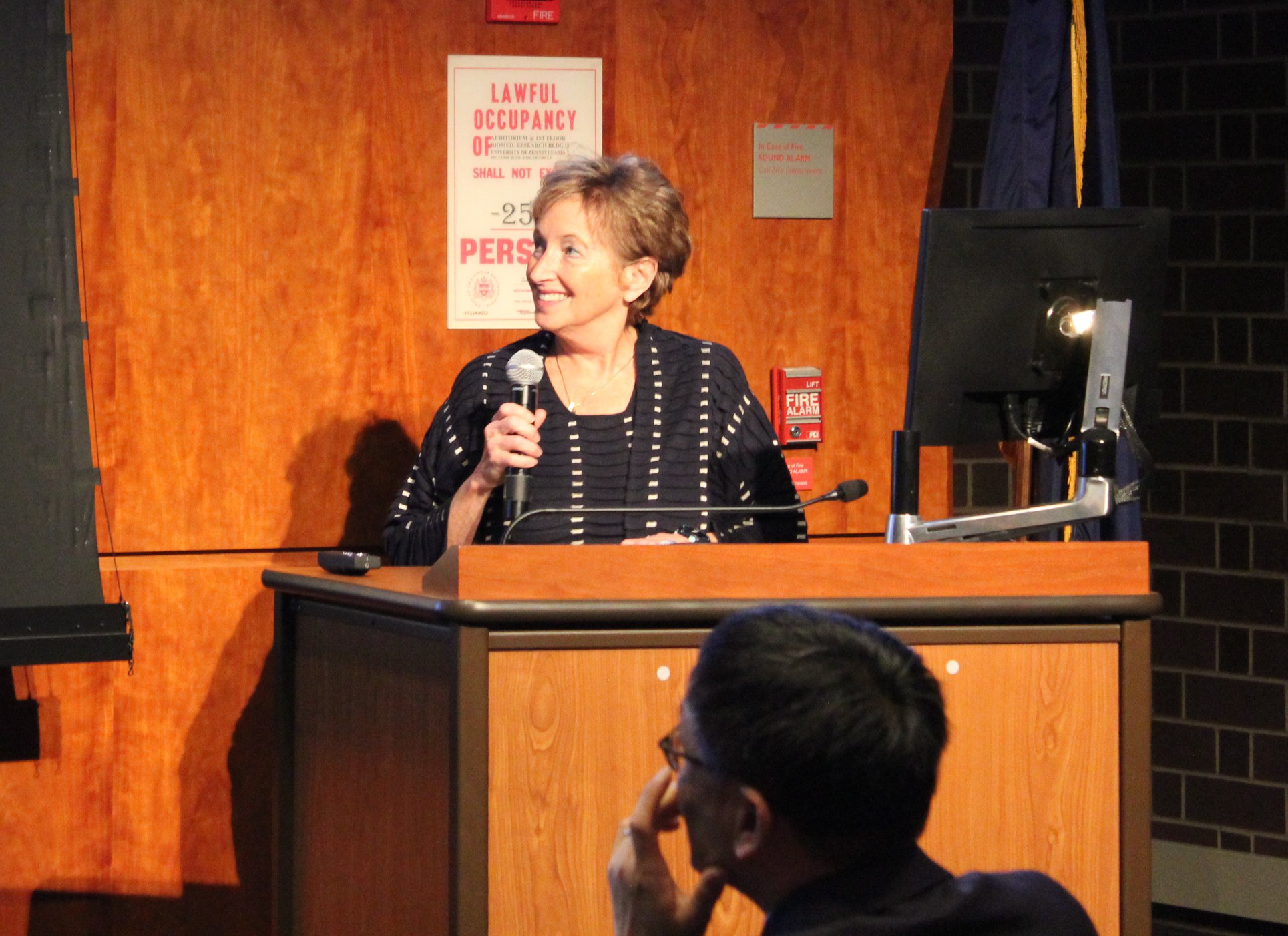
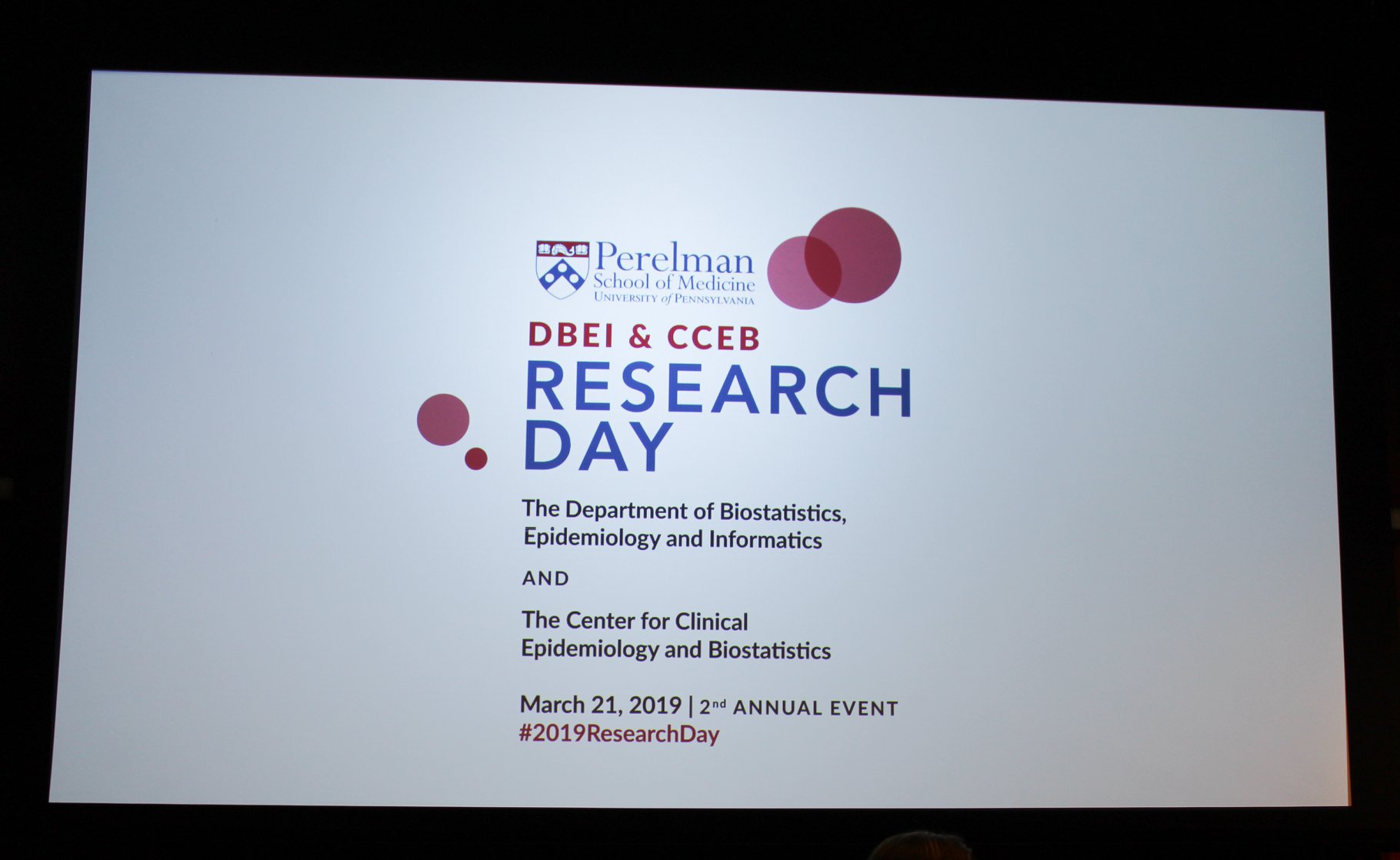
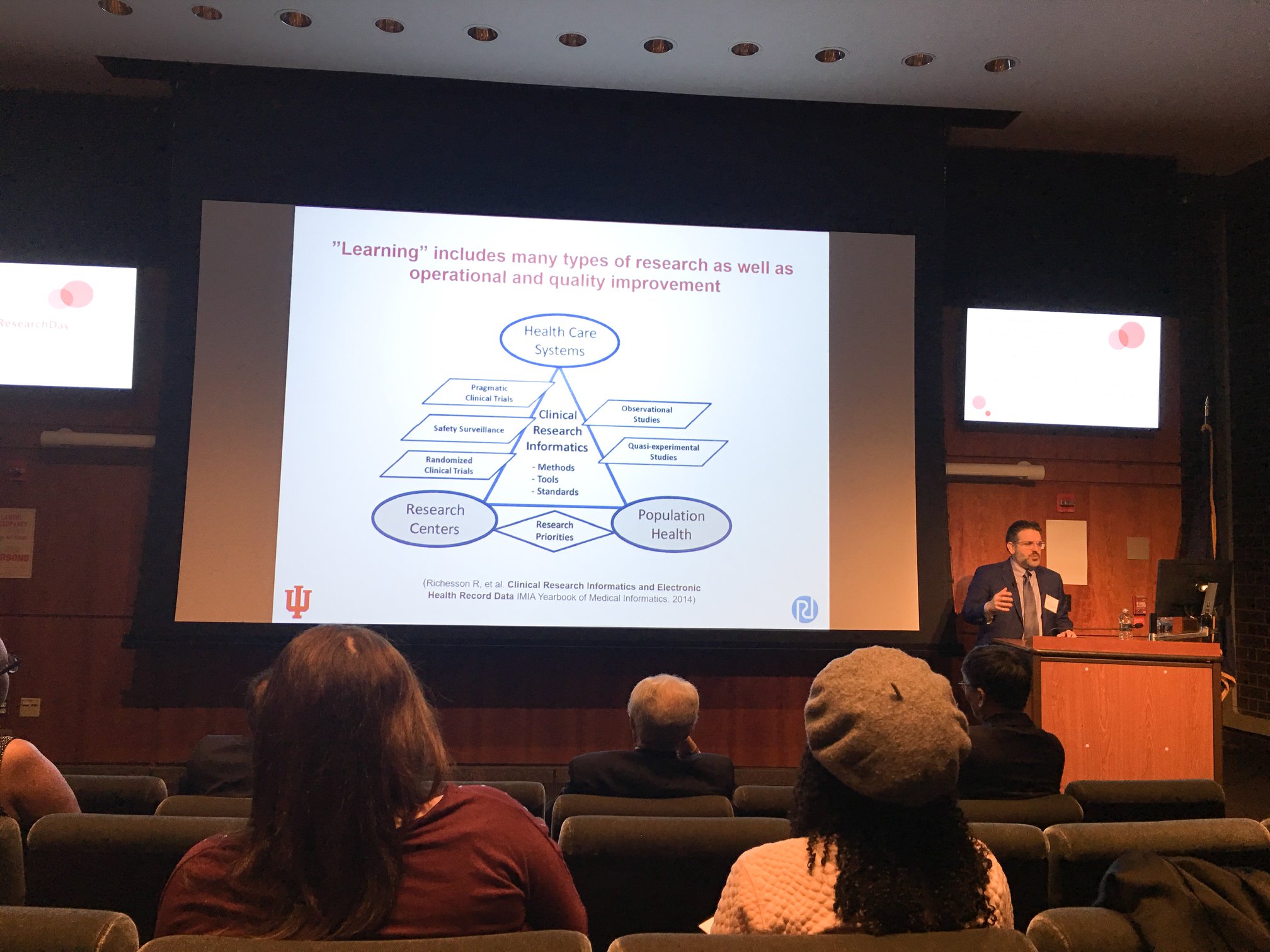
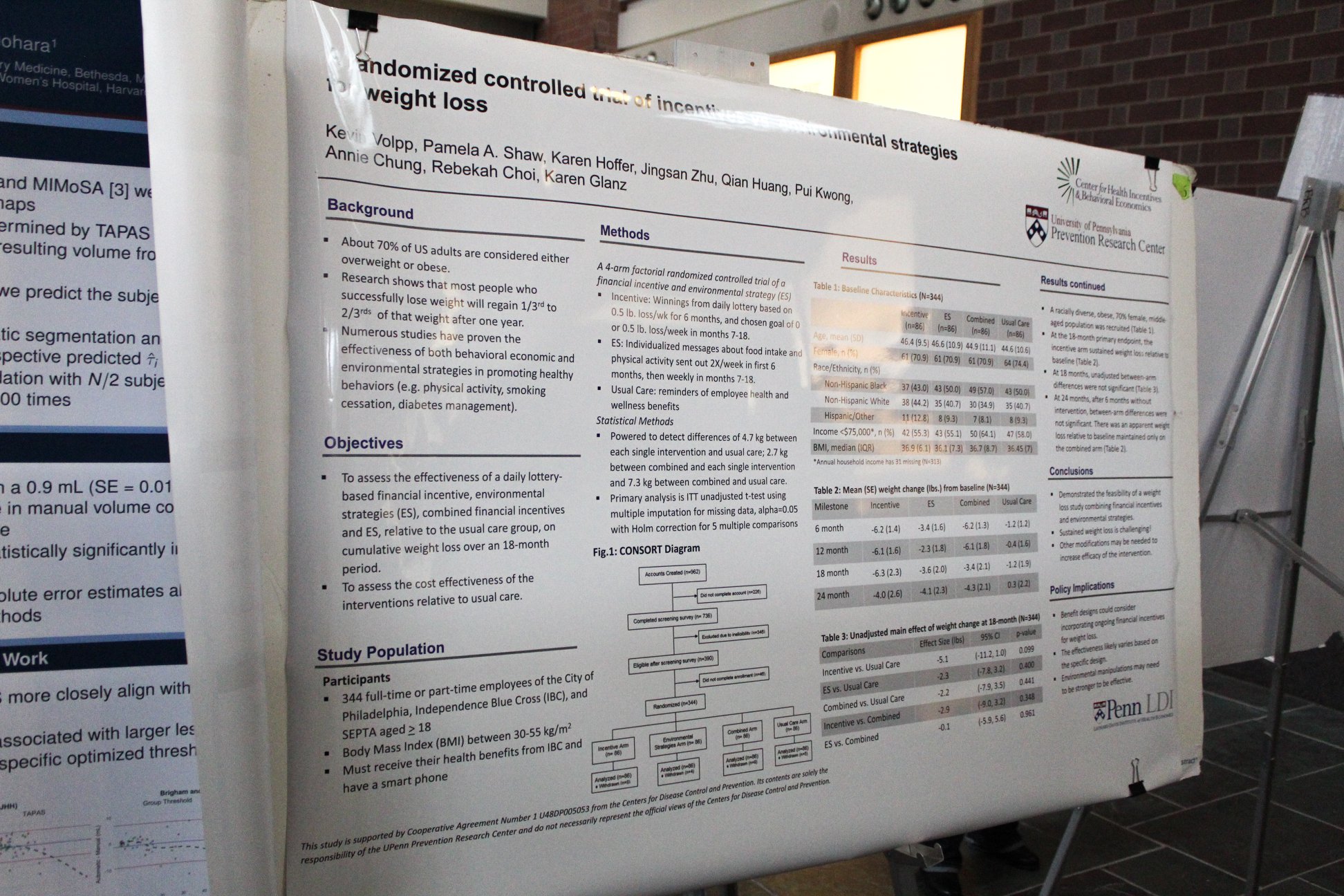
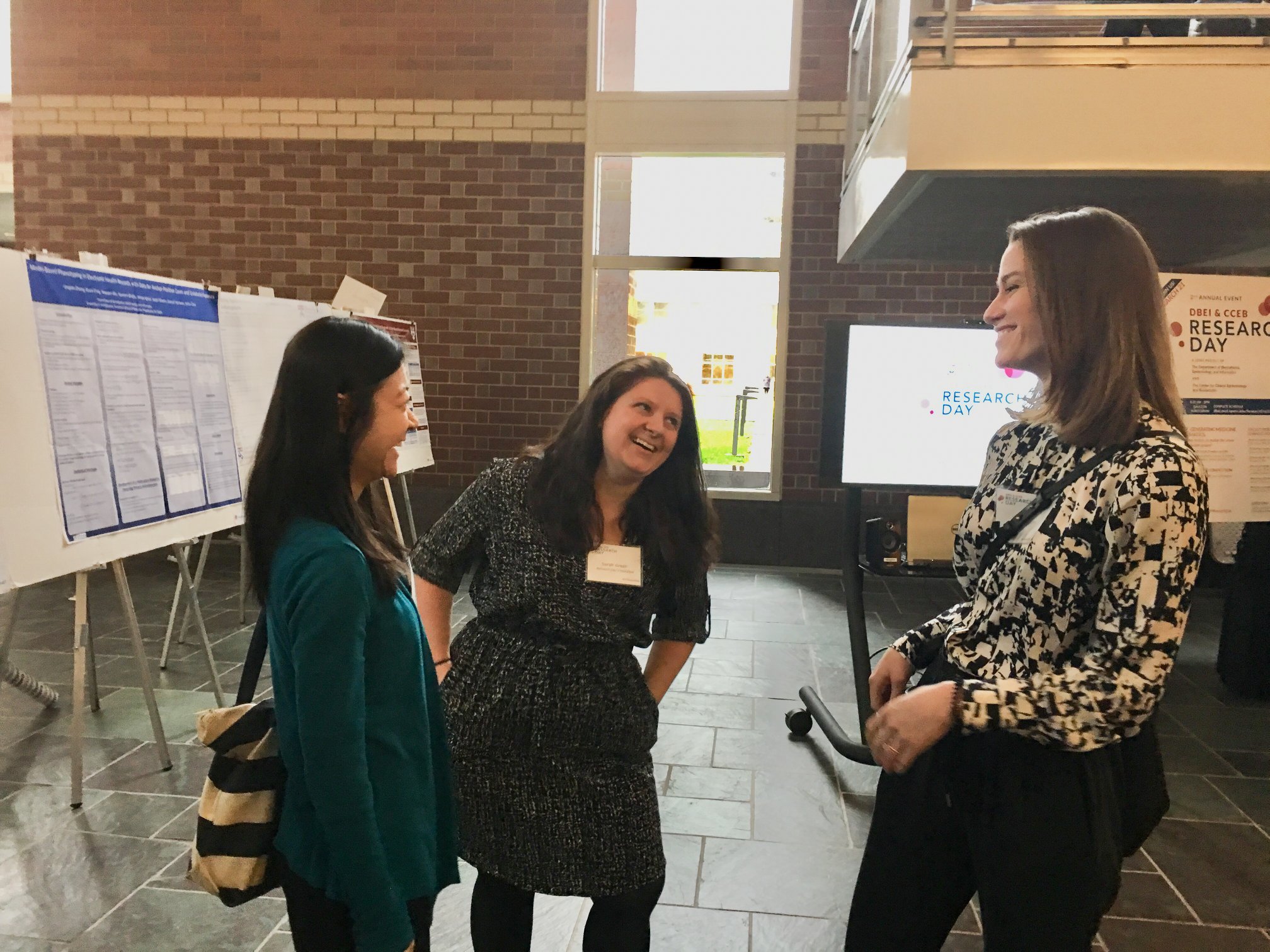
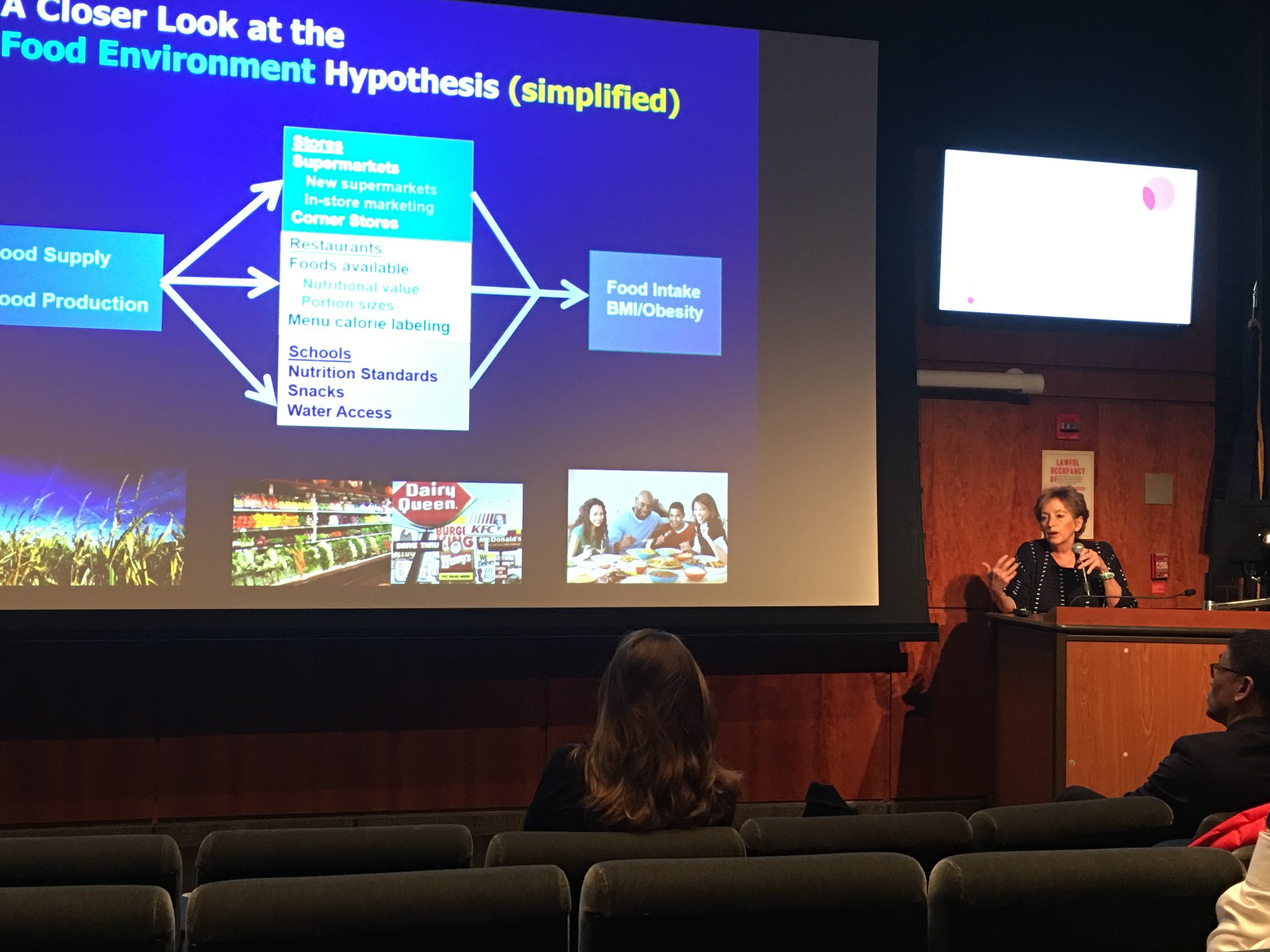
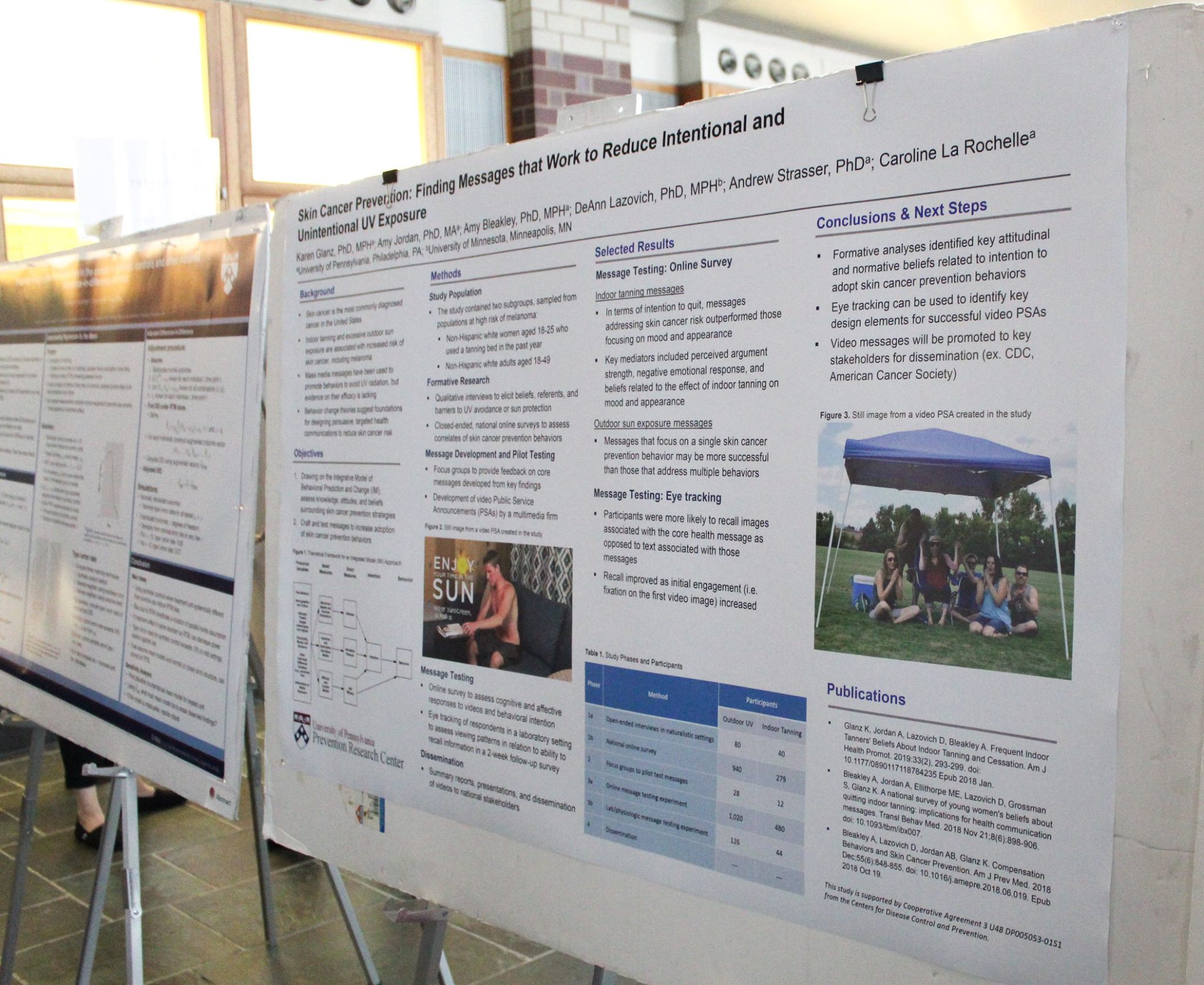
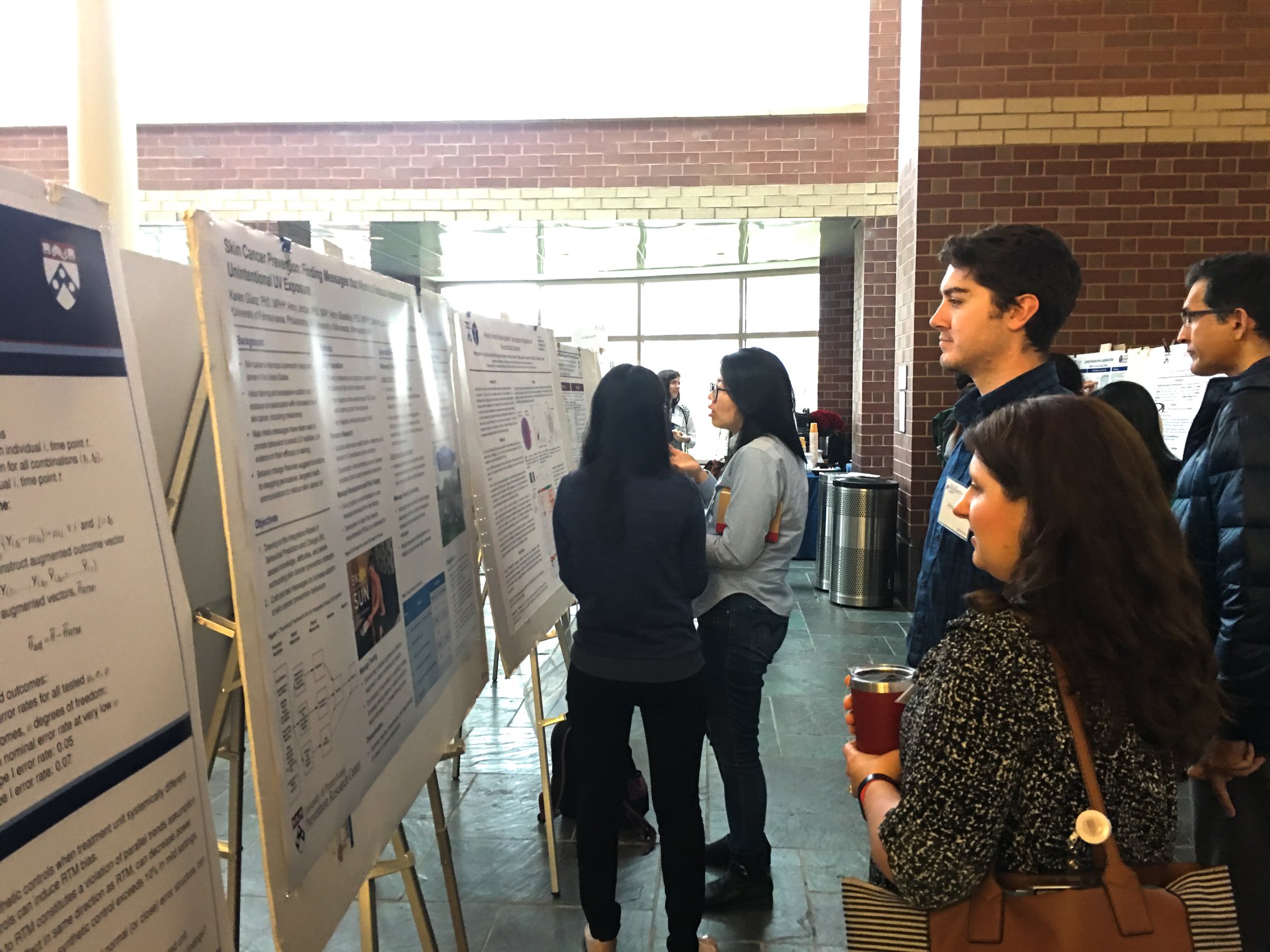
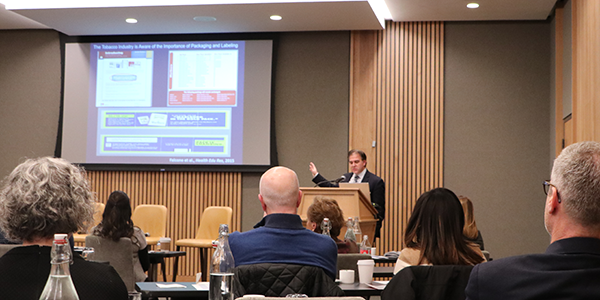

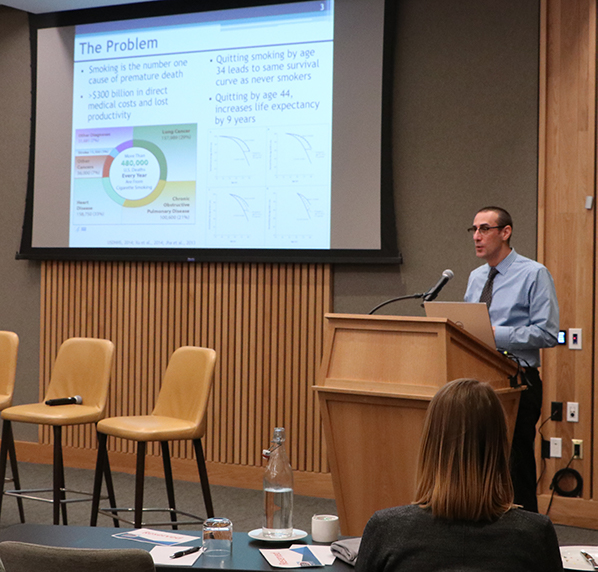
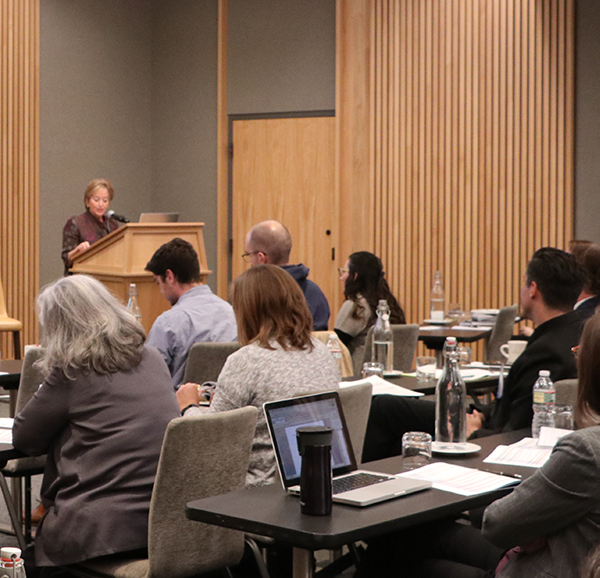
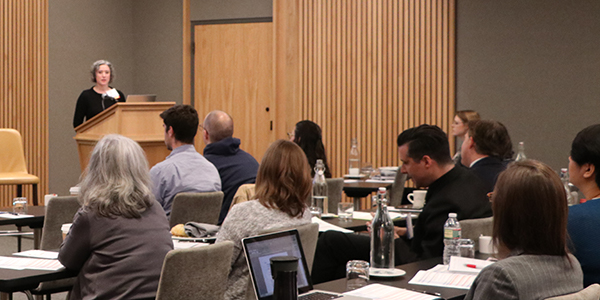

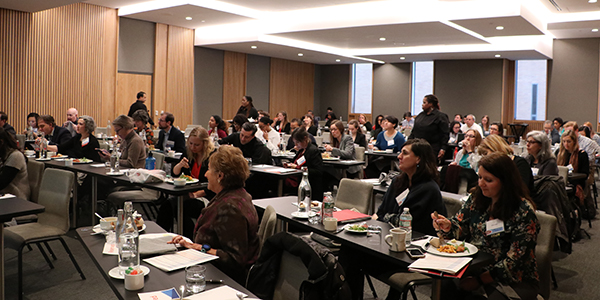

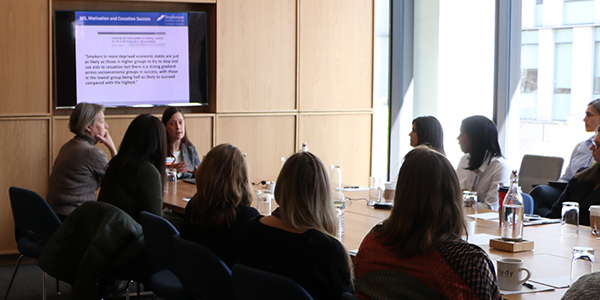
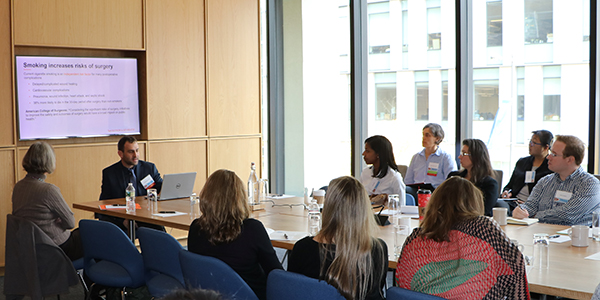
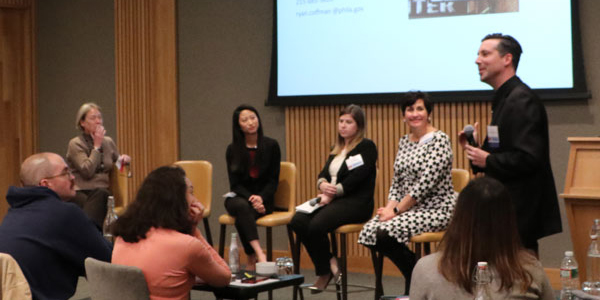
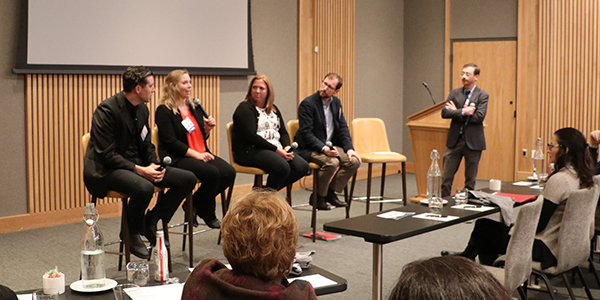
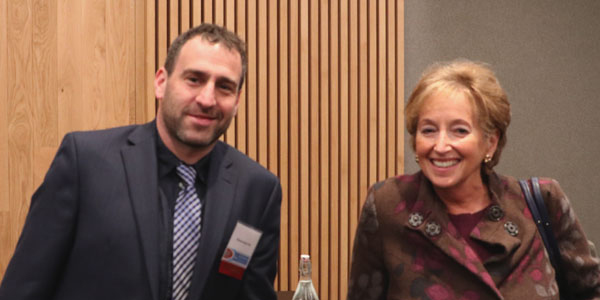
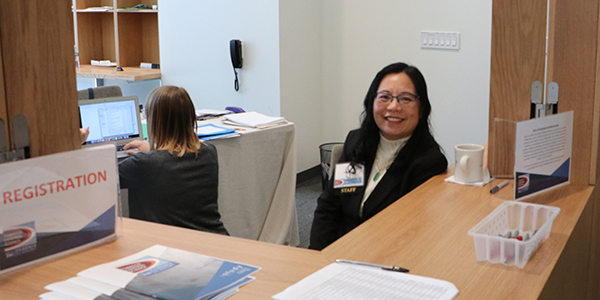
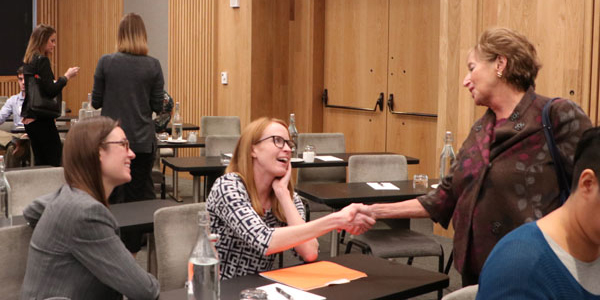
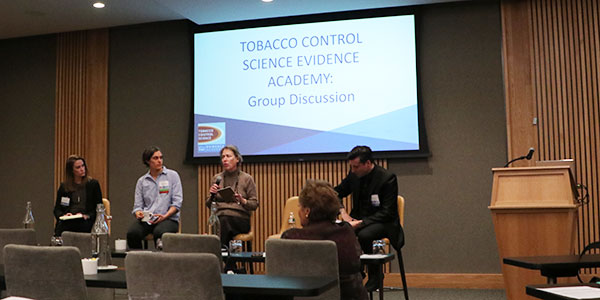





 UPenn PRC Director, Karen Glanz, PhD, MPH, joined other PRC Directors in a session to mark the 30thAnniversary of the
UPenn PRC Director, Karen Glanz, PhD, MPH, joined other PRC Directors in a session to mark the 30thAnniversary of the



 The Center for Public Health Initiatives
The Center for Public Health Initiatives



